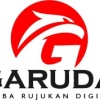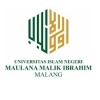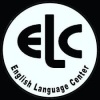Collaborative Writing Learning in Inquiry to Improve Critical Thinking Skills
Abstract
Full Text:
PDFReferences
Agustina, A. (2021). Indeks Aktivitas Literasi Membaca Peserta Didik Dan Prestasi Akademik: Studi Korelasi Pada 34 Propinsi Di Indonesia. Jurnal Analisa Pemikiran Insaan Cendikia, 4(2). https://doi.org/10.54583/apic.vol4.no2.70
Alfitri. (2020). Protecting Women from Domestic Violence: Islam, Family Law, and the State in Indonesia. In Studia Islamika (Vol. A27, Issue 2). https://doi.org/10.36712/sdi.v27i2.9408
Anisa, A. R., Ipungkarti, A. A., & Saffanah, K. N. (2021). Pengaruh Kurangnya Literasi serta Kemampuan dalam Berpikir Kritis yang Masih Rendah dalam Pendidikan di Indonesia. Current Research in Education Series Journal, 01(1).
Audi, R. (2011). Moral Value and Human Diversity. In Moral Value and Human Diversity. https://doi.org/10.1093/acprof:oso/9780195312942.001.0001
Bruno, L. (2019). Never A Dull Moment- Teaching and the Art of Performance. In Journal of Chemical Information and Modeling (Vol. 53, Issue 9).
Bunga Febriani, R., Rukmini, D., Mujiyanto, J., & Yuliasri, I. (2022). Lecturers’ Perception on the Implementation of Approaches to Teaching Literature in EFL Classrooms. Studies in English Language and Education, 9(1). https://doi.org/10.24815/siele.v9i1.21035
Chanan, G. (2018). Literature. In Values and Moral Development in Higher Education. https://doi.org/10.4324/9780429444043-7
Comber, B. (2015). Literacy, place, and pedagogies of possibility. In Literacy, Place, and Pedagogies of Possibility. https://doi.org/10.4324/9781315735658
Dymock, S. (2007). Comprehension Strategy Instruction: Teaching Narrative Text Structure Awareness. The Reading Teacher. https://doi.org/10.1598/rt.61.2.6
Eleanora, F. N., & Supriyanto, E. (2020). Violence against Women and Patriarkhi Culture in Indonesia. International Journal of Multicultural and Multireligious Understanding, 7(9). https://doi.org/10.18415/ijmmu.v7i9.1912
Gregory, M. (2001). Curriculum, Pedagogy, and Teacherly Ethos. Pedagogy, 1(1). https://doi.org/10.1215/15314200-1-1-69
Janks, H. (2012). The importance of critical literacy. English Teaching, 11(1).
Janks, H. (2014). Critical literacy’s ongoing importance for education. In Journal of Adolescent and Adult Literacy (Vol. 57, Issue 5). https://doi.org/10.1002/jaal.260
Kartiasih, F., & Pribadi, W. (2020). ENVIRONMENTAL QUALITY AND POVERTY ASSESSMENT IN INDONESIA. Jurnal Pengelolaan Sumberdaya Alam Dan Lingkungan (Journal of Natural Resources and Environmental Management), 10(1). https://doi.org/10.29244/jpsl.10.1.89-97
Khalifatussalam, R. I. (2021). Low Literacy in Indonesia: Understanding and Factors That Influence It. Low Literacy in Indonesia: Understanding and Factors That Influence It, November.
Kiswanto, Apriyani, I. D., Yanto, H., Hajawiyah, A., & Djajadikerta, H. G. (2020). Determinants of environmental disclosure in Indonesia. Journal of Environmental Management and Tourism, 11(3). https://doi.org/10.14505/jemt.v11.3(43).22
Luke, A. (2013). Defining critical literacy. In Moving Critical Literacies Forward: A New Look at Praxis Across Contexts. https://doi.org/10.4324/9780203521861
Mahfud, M., & Rizanizarli, R. (2021). Domestic Violence against Women in Indonesia: The Recent Domestic Violence Elimination Law Analysis. Fiat Justisia: Jurnal Ilmu Hukum, 15(4). https://doi.org/10.25041/fiatjustisia.v15no4.2276
Maria Vasquez, V. (2004). Negotiating critical literacies with young children. In Negotiating Critical Literacies With Young Children. https://doi.org/10.4324/9781410611109
Muthmainnah, Rahman, A., Atmowardoyo, H., Salija, K., & Asrifan, A. (2020). Literary work as teaching materials: A study of students and lecturers needs analysis. Solid State Technology, 63(5).
Nilan, P., Demartoto, A., Broom, A., & Germov, J. (2014). Indonesian Men’s Perceptions of Violence Against Women. Violence Against Women, 20(7). https://doi.org/10.1177/1077801214543383
Noer, K. U., Chadijah, S., & Rudiatin, E. (2021). There is no trustable data: the state and data accuracy of violence against women in Indonesia. Heliyon, 7(12). https://doi.org/10.1016/j.heliyon.2021.e08552
Novianti, N., Thomas, A., & To, V. (2020). Addressing challenges in the practice of critical literacy in EFL classrooms: A new framework. Indonesian Journal of Applied Linguistics, 10(1). https://doi.org/10.17509/IJAL.V10I1.25049
Parker, L., & Prabawa-Sear, K. (2019). Environmental Education in Indonesia. In Environmental Education in Indonesia. https://doi.org/10.4324/9780429397981
Putra, I. G. N. E., Pradnyani, P. E., & Parwangsa, N. W. P. L. (2019). Vulnerability to domestic physical violence among married women in Indonesia. Journal of Health Research, 33(2). https://doi.org/10.1108/JHR-06-2018-0018
Saleh, R. C., Atiyatna, D. P., Darma, D., & Sari, P. (2021). Environmental Sanitation , Poverty , and Stunting in Indonesia. Journal of Economic Development, Environment and …, 10(2).
Serpa, S., & Santos, A. I. (2020). Critical Literacy and Literacies. Journal of Education, Teaching and Social Studies, 2(1). https://doi.org/10.22158/jetss.v2n1p18
Susilo, M. E., Afifi, S., & Yustitia, S. (2020). Hoax as a Reflection on the Low Digital Literacy in Indonesia. https://doi.org/10.5220/0009100201650174
Vasquez, V. M., Janks, H., & Comber, B. (2019). Critical Literacy as a way of Being and Doing. Language Arts, 96(5).
DOI: https://doi.org/10.18860/jeasp.v7i1.26429
Refbacks
- There are currently no refbacks.

This work is licensed under a Creative Commons Attribution-ShareAlike 4.0 International License.







Editorial Office:
Pusat Pengembangan Bahasa
Program Khusus Pengembangan Bahasa Inggris (PKPBI)
Universitas Islam Negeri Maulana Malik Ibrahim Malang
Gedung C lantai 1
Jl. Gajayana No 50 Kota Malang, Jawa Timur, Indonesia
Kode Pos 65144, Telp/Fax : (0341) 570872
Email: jeasp@uin-malang.ac.id
JEASP : Journal of English for Academic and Specific Purposes is licensed under a Creative Commons Attribution-ShareAlike 4.0 International











